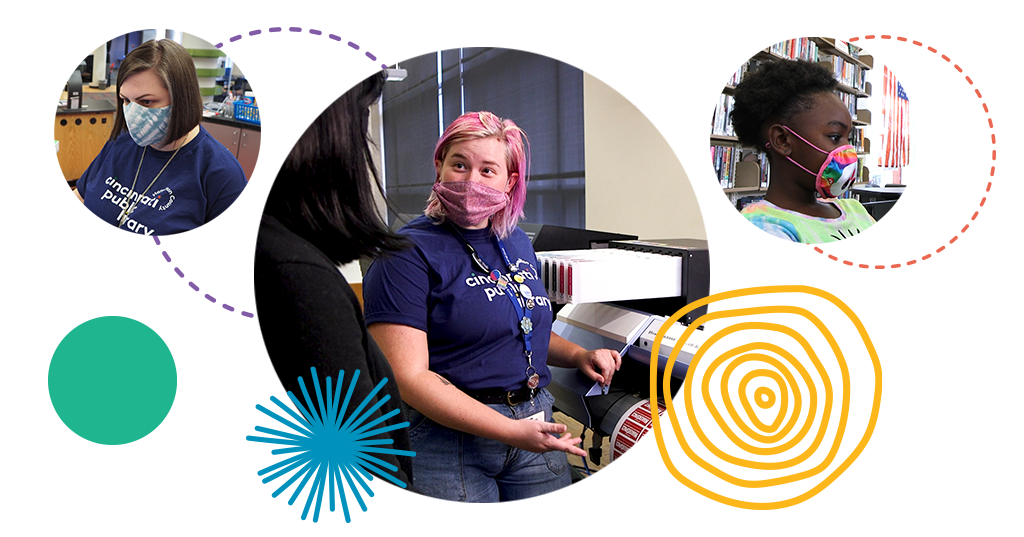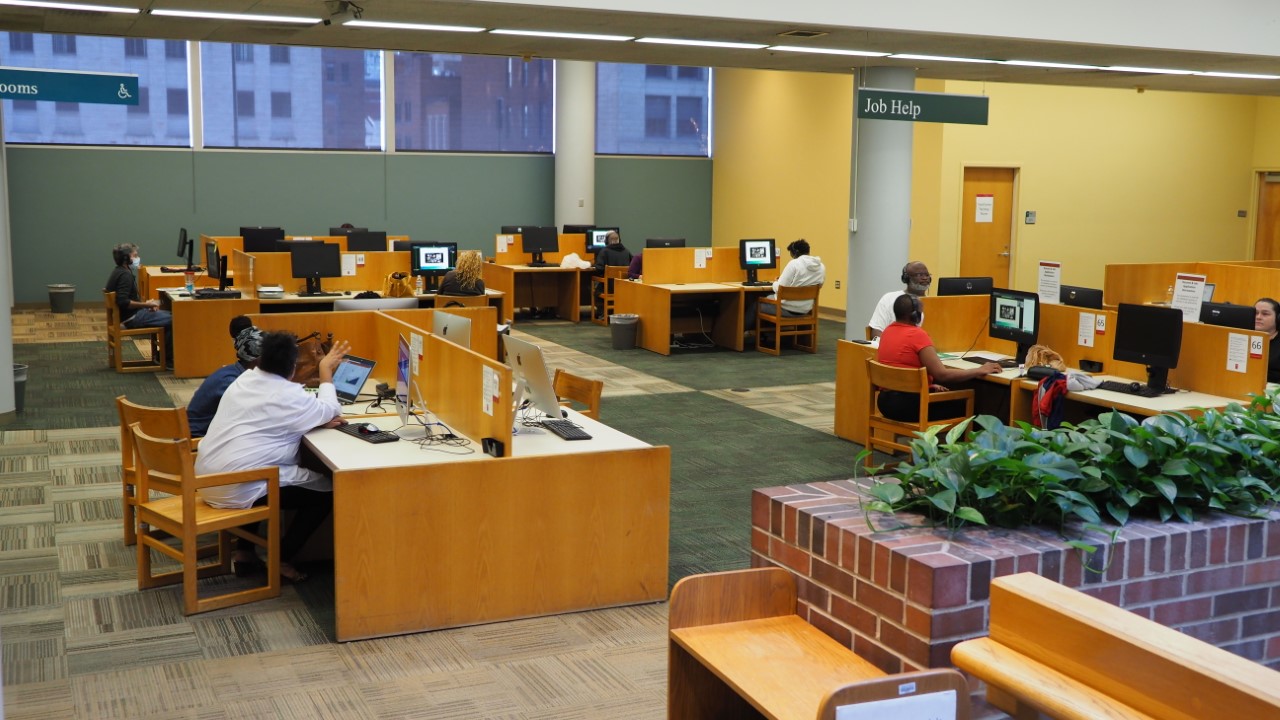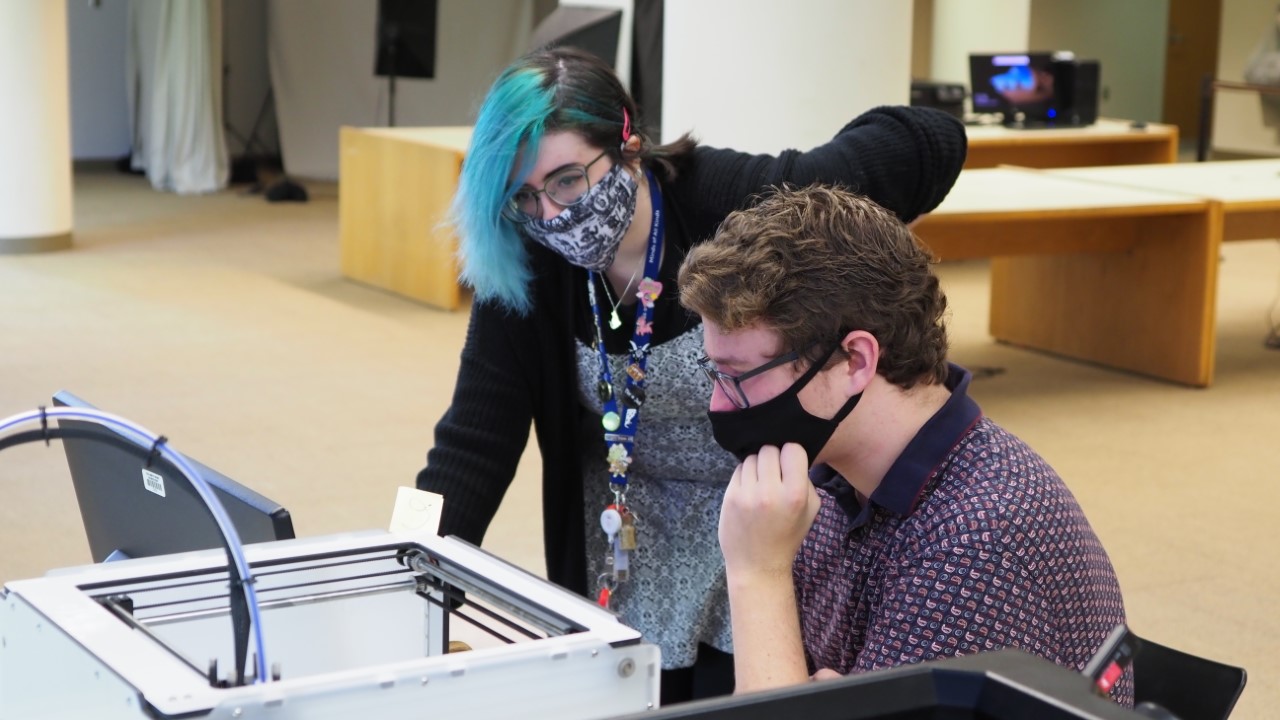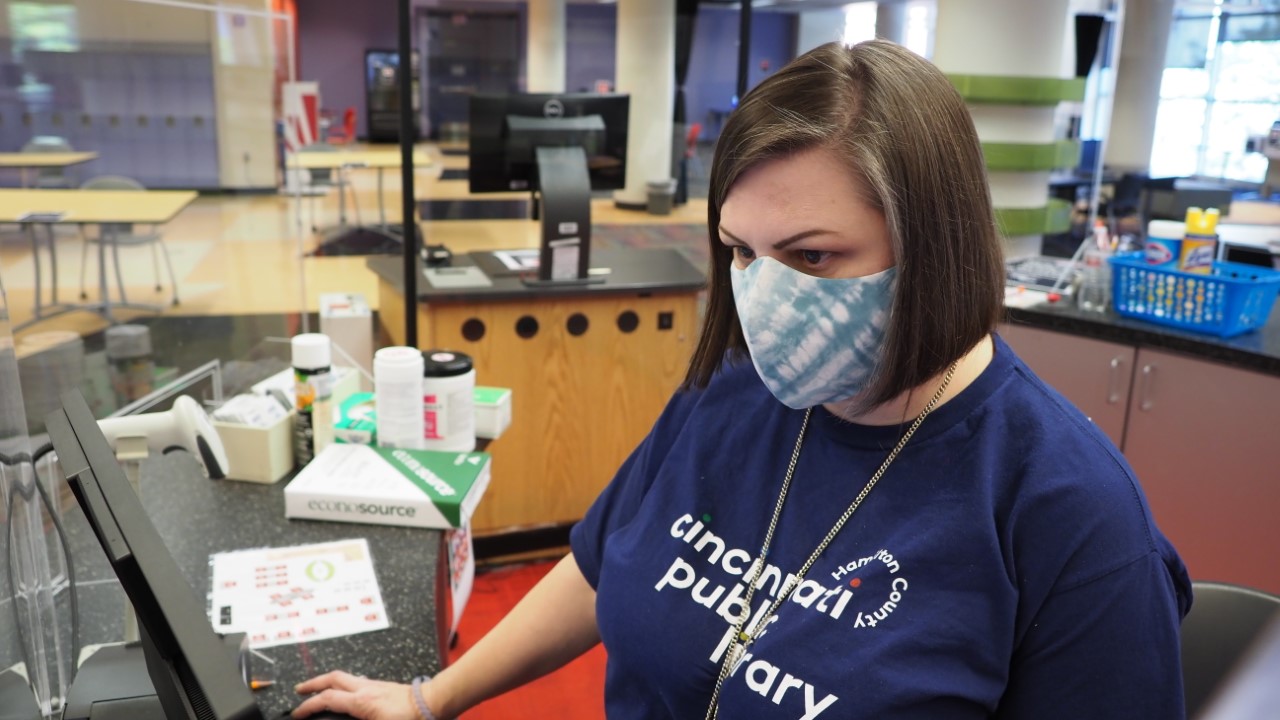 Written by Nate Pelley, Tech Center and MakerSpace Manager, Downtown Main Library
Written by Nate Pelley, Tech Center and MakerSpace Manager, Downtown Main Library
Libraries are rooted in community and equality. They're places where everyone who passes through the doors is treated with dignity and respect. One of our missions at CHPL is providing equitable access to all of our resources for all of our customers, especially technology customers. In the time of COVID-19, free access to technology has become even more important to the community—and more of a challenge.
Access for All
In the Tech Center at the Downtown Main Library, staff always are available to help job seekers, individuals seeking help navigating social service websites, and customers who are looking to improve their skills with technology.
“We help everybody with everything technology-related,” said Library Technician William McAfee. “Setting up an email account, writing a résumé, downloading content from the library’s digital offerings; we are glad to assist with anything customers need help with.”

Upon re-opening in June, library staff had a new tool at their disposal: Zoho.
“Zoho is screen-sharing software that allows staff to remotely access library PCs to provide complete, and safely distanced, support,” said Team Leader Corey Gibson. “We can see exactly what the customer has on their screen. We can tell them where to click, what information to put in a particular field, and even chat with them from across the room. It’s been a hugely popular resource and it definitely provides peace of mind for both customers and staff.”
Library Technician Alicia Brewer sums it up this way.
“Access to technology is not a luxury in modern society. It is a utility that is as essential as water or electricity. One cannot engage is schooling, healthcare, job-seeking, or managing their finances without access to technology,” she said. “What we provide to the public with digital literacy and accessibility is the means to effectively manage their lives and uplift themselves.”
Bridging the Gap
Staff in the Main Library’s MakerSpace also believe in the importance of equitable access. In fact, the MakerSpace’s core philosophy is all about equity.
“We are all about providing access to equipment and technology that customers probably aren’t going to have access to anywhere else," said Library Technician Chloe Bell. “Most of us aren’t going to have a laser cutter in the garage or a photography studio in the basement. But here in the MakerSpace, customers have access to these things.”
If you are a teacher, or a small business owner, or a nonprofit, you usually don’t have a lot of extra money or resources. Equipment such as our vinyl printers make creating signs, banners, posters, stickers, and decals super easy and, more importantly, very affordable.
 “We have Photoshop and Illustrator available on our PCs and Mac stations,” said Library Technician Amanda Satchwell. “That software is expensive and, quite frankly, not within the budget of most people. But we have free access to it here in the MakerSpace. Plus, we can help guide you through the process of setting up your project even if you aren’t a graphic designer or an engineer.”
“We have Photoshop and Illustrator available on our PCs and Mac stations,” said Library Technician Amanda Satchwell. “That software is expensive and, quite frankly, not within the budget of most people. But we have free access to it here in the MakerSpace. Plus, we can help guide you through the process of setting up your project even if you aren’t a graphic designer or an engineer.”
Equitable access to technology isn’t always about providing hardware or software, though. Sometimes it is just about providing space. All library locations offer free WiFi but it has been a challenge during the pandemic to figure out a way to safely and efficiently allow access.
"Since the start of COVID-19 we have been working with limited capacity in the building and reduced durations for access," said Library Technician Tina Schultz. "On Oct. 5, we were excited to begin offering more space on the second floor or the Main Library for customers who just want a table to work on their laptop or a place to charge their cell phone. So now we have more space, more capacity, and longer visit durations; it’s been a huge need in the community and we are so glad to be able to help meet it."
(As of October 5, in-person visits have been increased to 2 hours, up from the previous 1 hour limit. For a list of open locations, please visit our Library Restart page.)
Beyond Library Walls
Tech equity extends beyond the physical walls of our library buildings as well. Lending out mobile hotspots has been a popular service for the past few years, but now has become increasingly important over the last few months. With many students studying remotely and those in the workforce now often trying to do their jobs from home, reliable internet access is more crucial than ever. You can check out a mobile hotspot using your library card. There may be a waitlist.
As supporters of lifelong learning, it should come as no surprise that the library has invested heavily in online resources to help customers gain important skills—from job readiness and basic digital literacy all the way up to advanced skills like video editing and JavaScript basics.
 Library cardholders can access Lynda.com, which boasts an award-winning collection of online courses, classes, trainings, and tutorials for users who want to learn software, creative, and business skills to achieve personal or professional goals. Treehouse is another exciting digital resource that brings affordable technology education to everyone. Courses on a variety of advanced technology-related topics—including coding, web design, and app creation—are available. Tracks are self-paced and progress can be tracked and saved over multiple sessions. Access to both Lynda.com and Treehouse is available for free to everyone with a library card.
Library cardholders can access Lynda.com, which boasts an award-winning collection of online courses, classes, trainings, and tutorials for users who want to learn software, creative, and business skills to achieve personal or professional goals. Treehouse is another exciting digital resource that brings affordable technology education to everyone. Courses on a variety of advanced technology-related topics—including coding, web design, and app creation—are available. Tracks are self-paced and progress can be tracked and saved over multiple sessions. Access to both Lynda.com and Treehouse is available for free to everyone with a library card.
Through these many different avenues, the library strives to bring equity of tech access to everyone in Cincinnati and Hamilton County. What’s next at your library? Stay tuned as we continue to evolve and respond to the needs of our community and the changes in technology over the months and years ahead.


Add a comment to: Access for All: How the Library Aims to Provide Tech Equity